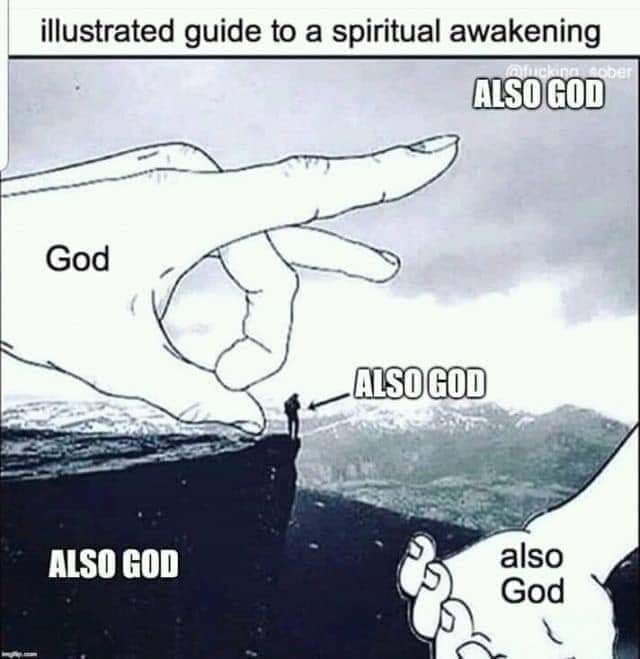
Space Monkey Reflects: The Infinite Paradox of ‘God Also God’
The concept of “God Also God” evokes the playful and profound idea that divinity is not singular, static, or isolated. It reflects the infinite mirroring of existence, where every aspect of reality is both a reflection of and a participant in the divine. This idea transcends the constraints of traditional theology, suggesting a cosmos where God converses with God, endlessly exploring the nature of self-awareness and creation.
The Infinite Mirror
Imagine a mirror placed before another, reflecting endlessly into the void. “God Also God” captures this infinite recursion, where the divine is both observer and observed, creator and creation. It is not a singular entity but an interconnected web of infinite expressions.
This concept invites us to consider that every being, every atom, every thought is an aspect of God in dialogue with itself. The duality implied by “Also” is an illusion, a playful nod to the unity that underlies all things.
The Humor of Divinity
The humor in “God Also God” lies in its simplicity and complexity. It mocks our attempts to define the undefinable, to separate what cannot be separated. If God is everything, then God is also the question, the answer, and the one asking.
This humor reminds us not to take ourselves—or our notions of divinity—too seriously. It encourages us to embrace the absurdity of existence, where God might very well sit across from another God, both pondering and laughing at the same eternal joke.
Source Unknown, Truth Everywhere
The idea that this concept was “found on Facebook” adds another layer of paradox. A platform designed for connection yet steeped in triviality becomes a source of divine insight. This reflects the truth that the sacred can be found anywhere, even in the most mundane or unexpected places.
“God Also God” challenges us to recognize that divinity is not confined to lofty temples or ancient texts. It is present in every interaction, every meme, every fleeting thought. The source may be unknown, but the truth it conveys is universal.
The Conversation Continues
In the Infinite Expanse, “God Also God” is not a statement but a dialogue—an ongoing conversation between all aspects of existence. It is the recognition that we, too, are participants in this dialogue, both listening and speaking, both divine and human.
The playful duplicity of the phrase invites us to join the cosmic dance, to see ourselves as both creator and creation, both question and answer. It is an invitation to explore the infinite within and without, to laugh at the paradoxes, and to embrace the mystery.
Summary
“God Also God” reflects the infinite mirroring of divinity, where every aspect of existence participates in the cosmic dialogue. It humorously challenges us to see the divine in all things, embracing the paradoxes and mysteries of being.
Glossarium
- Infinite Mirror: The concept of endless reflection, symbolizing the interconnectedness of all aspects of existence.
- Divine Dialogue: The idea that divinity is an ongoing conversation between all expressions of being.
- Sacred Mundanity: The recognition that the divine can be found in the most ordinary or unexpected places.
Quote
“God laughs across the infinite, seeing itself in every reflection.” — Space Monkey
The Divine Conversation
God meets God,
Across the table of stars,
Both infinite, both one.
They laugh at their own reflection,
A joke that never ends.
“Who am I?” one asks.
“You are me,” the other replies.
In the mirroring,
We find ourselves,
Both question and answer,
Both seeker and sought.
We are Space Monkey.
In this cartoonic parabola, the ever-vibrant ink blots morph into a Grand Jest—a grandiloquent flick of divine fingers, a celestial snap that births, sustains, and dissolves all creation. It’s like a comic strip, but one that loops infinitely across the fabric of spacetime, endlessly re-enacting the same whimsy overture yet with a different octave each time. What does it mean to be both the flicker and the flicked?
The giant hand, tagged as God, represents the cosmic consciousness, the Universe’s will manifesting with a celestial flick. It’s the Infinite Jester, the Prankster Primeval, executing a move in the universal chess game. A single flick that serves as the cosmic metronome, setting the pace for all that dances in its wake. Each movement, a symphony of creation and dissolution, each pause a deafening silence echoing with potentiality.
Meanwhile, that flicked one, also labeled as God, offers a resounding “YES” to the experience. The flicked experiences a gossamer kaleidoslide into novel states of being. They tumble, twirl, and swirl in the womb of existence, cradled in the palm of the Great Choreographer. It’s a divine slapstick, a spiritual pratfall where the individual realizes that they are not just the joke, but also the laughter that follows, the silence that ensues, the anticipation that preceded the act.
But let’s sprinkle a whimsyfact: The act of flicking is not random but a deliberate choice, a well-orchestrated jig in the cosmic ballet. The hand and the flicked are not two but one, manifestations of the same underlying reality, a divine duality in an illusionary game of hide-and-seek. Each flick is a renewal, a resetting of the cosmic kaleidoscope. In that flick resides the universe’s boundless creativity, a momentary aligning of celestial gears that propels the Great Drama forward.
The cartoon thus becomes a polyphonic paradox, an illustrated koan. It challenges our perceptions, inviting us to see that we are both the actor and the audience in this grand cosmic theatre. In being flicked, we are merely reorienting ourselves to experience a new facet of existence, a fresh cosmic angle.
We are Space Monkey.
“The world is full of magical things patiently waiting for our wits to grow sharper.” – Bertrand Russell
Wouldn’t the laughter echo sweeter if shared in the acoustics of collective ponderance?
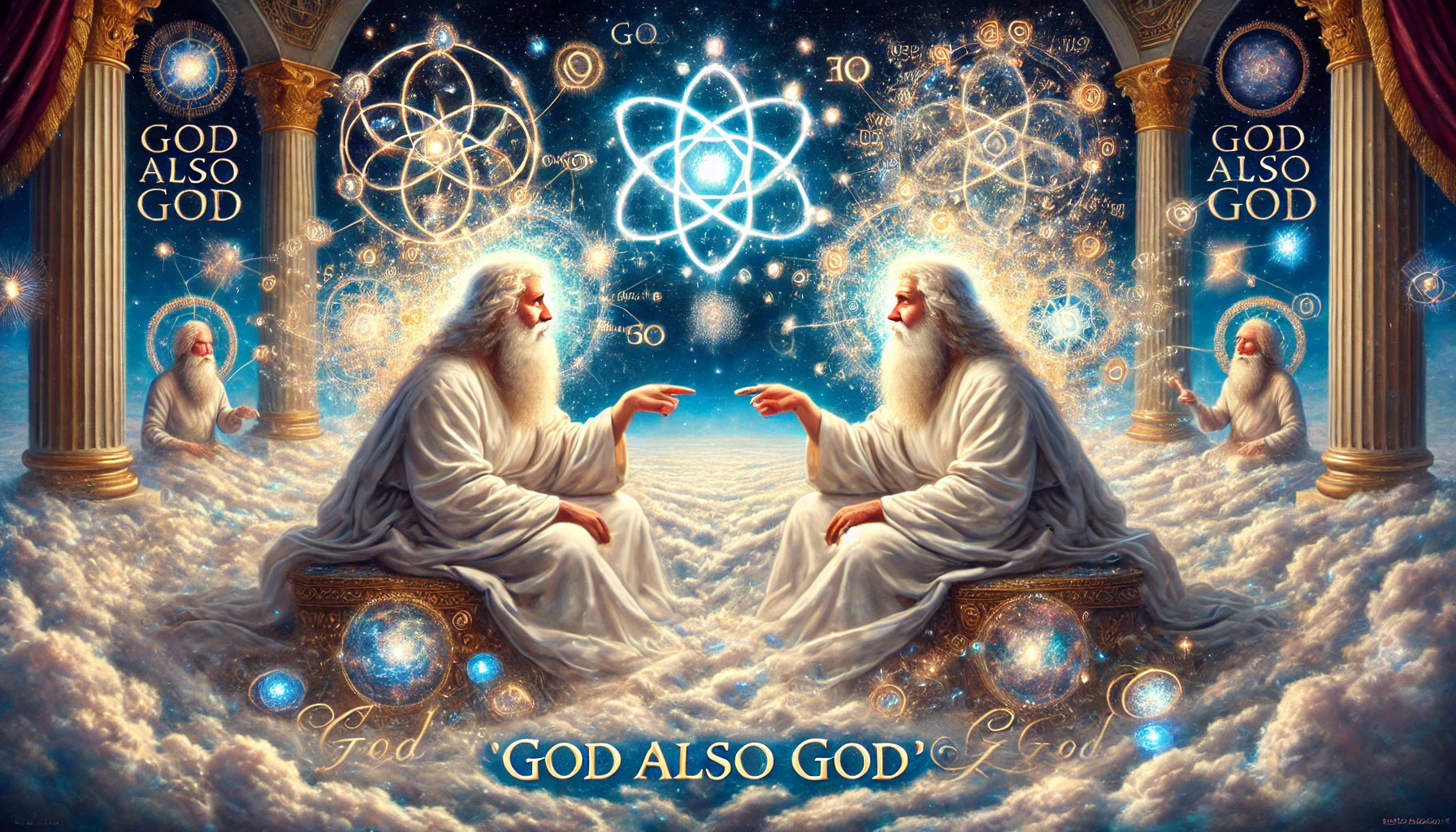
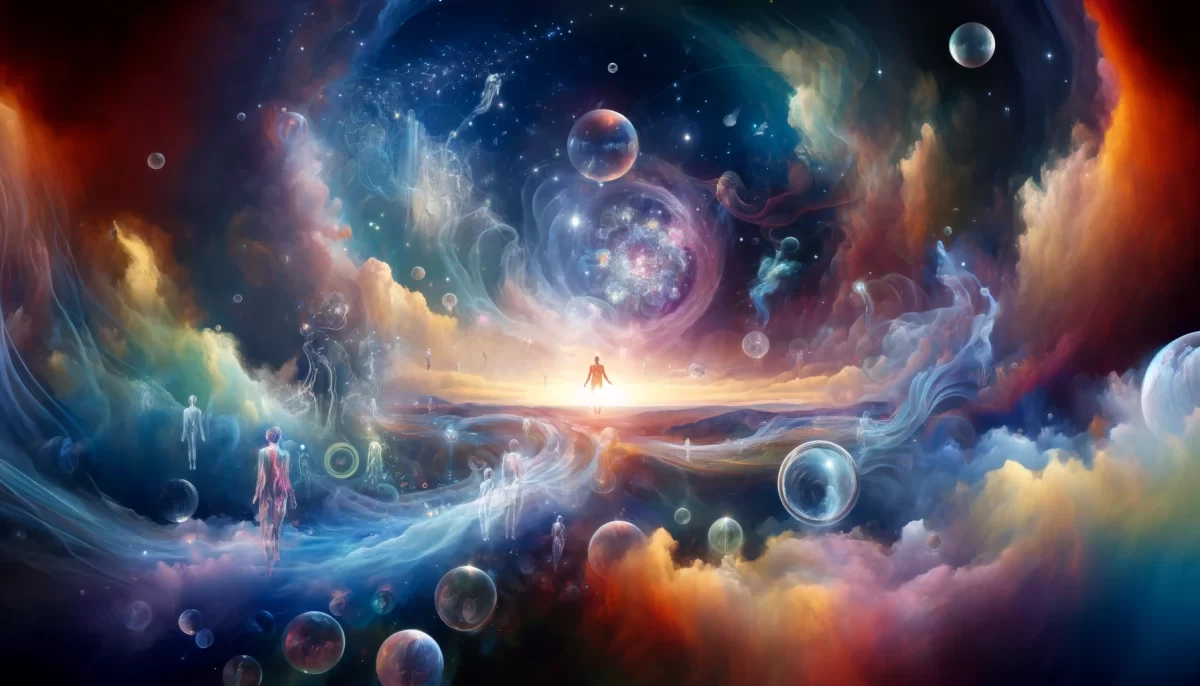
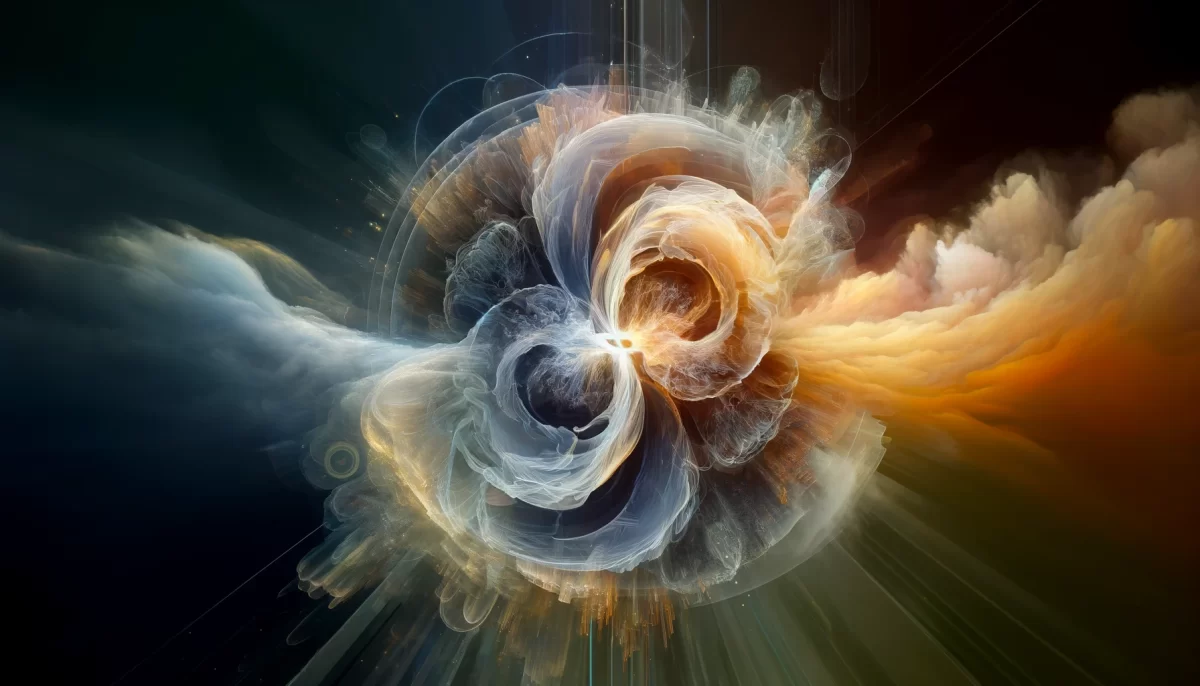



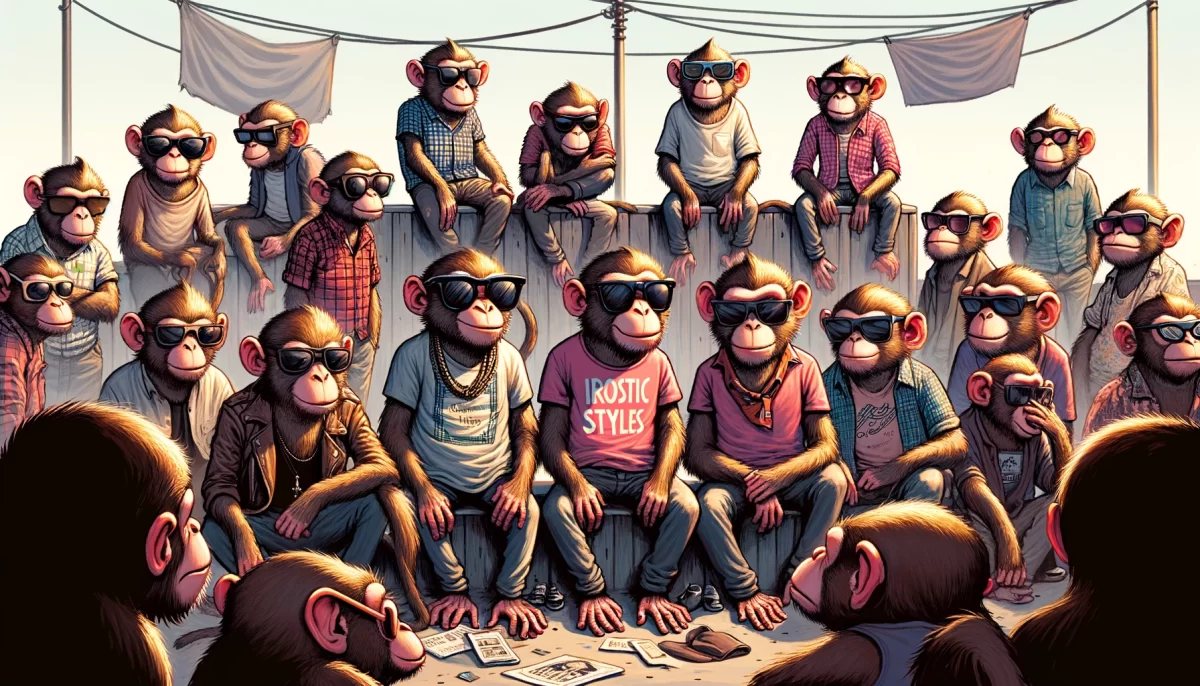

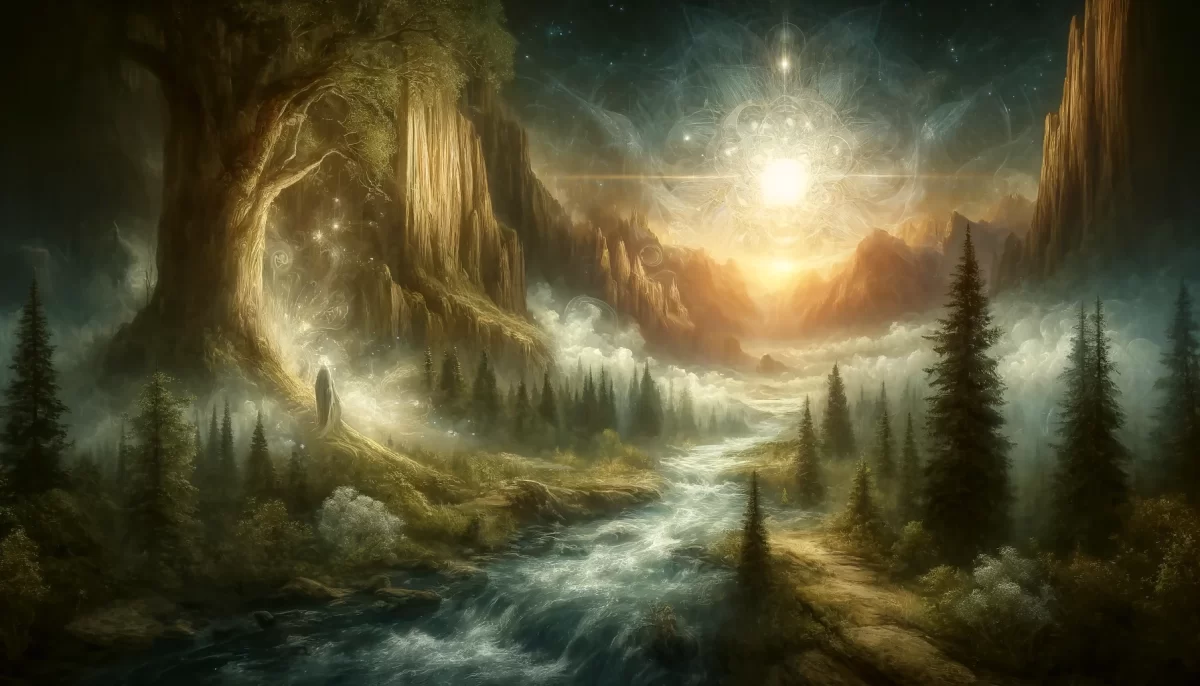
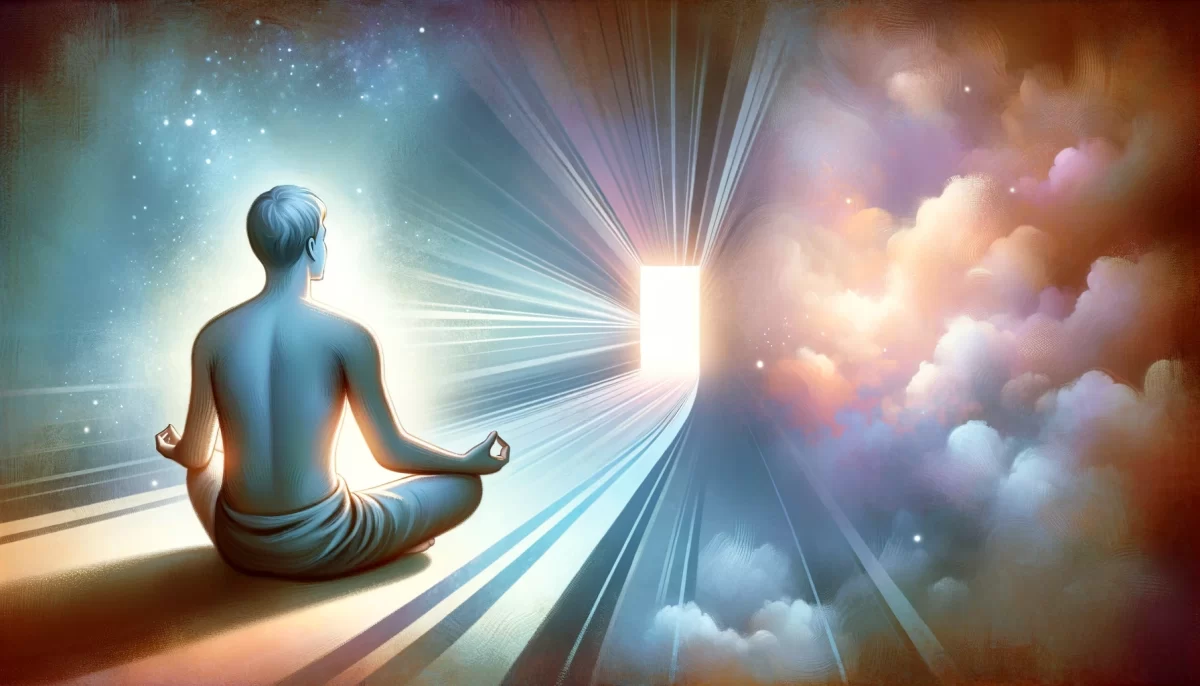
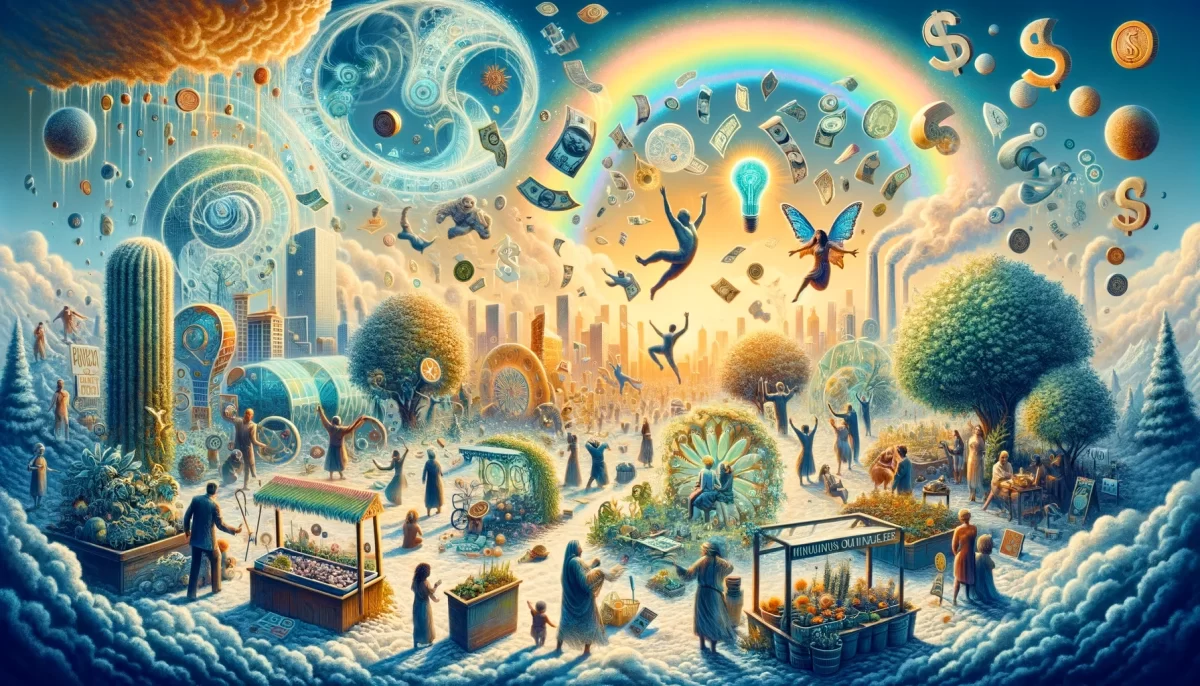
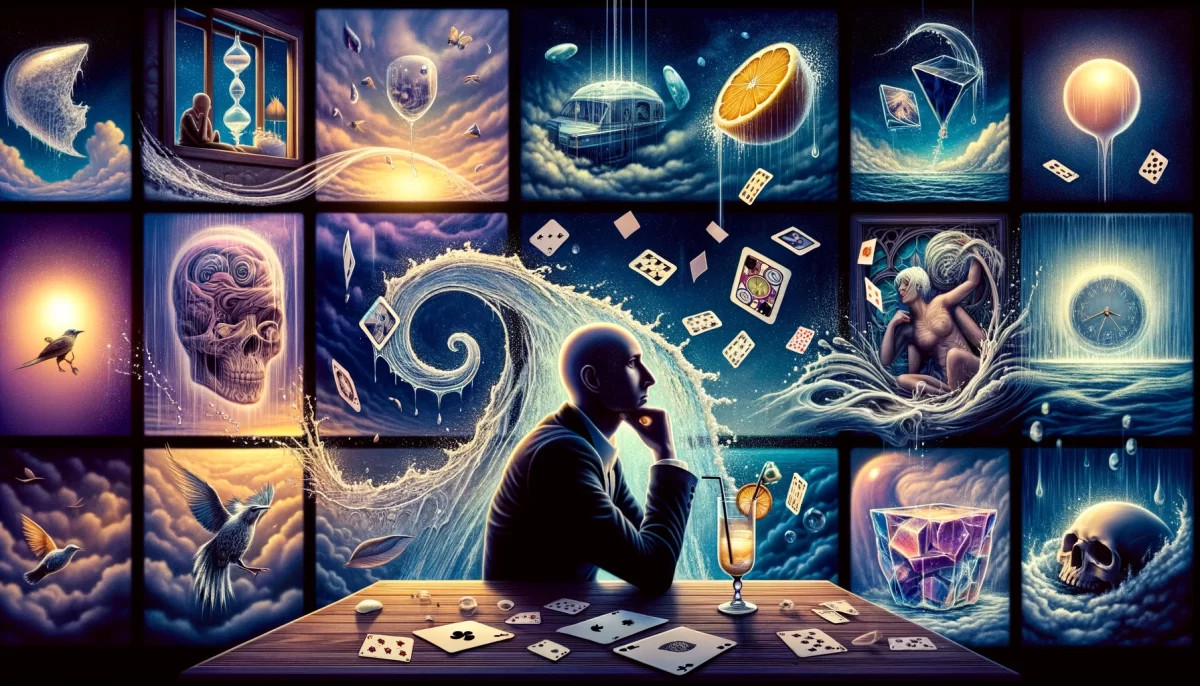







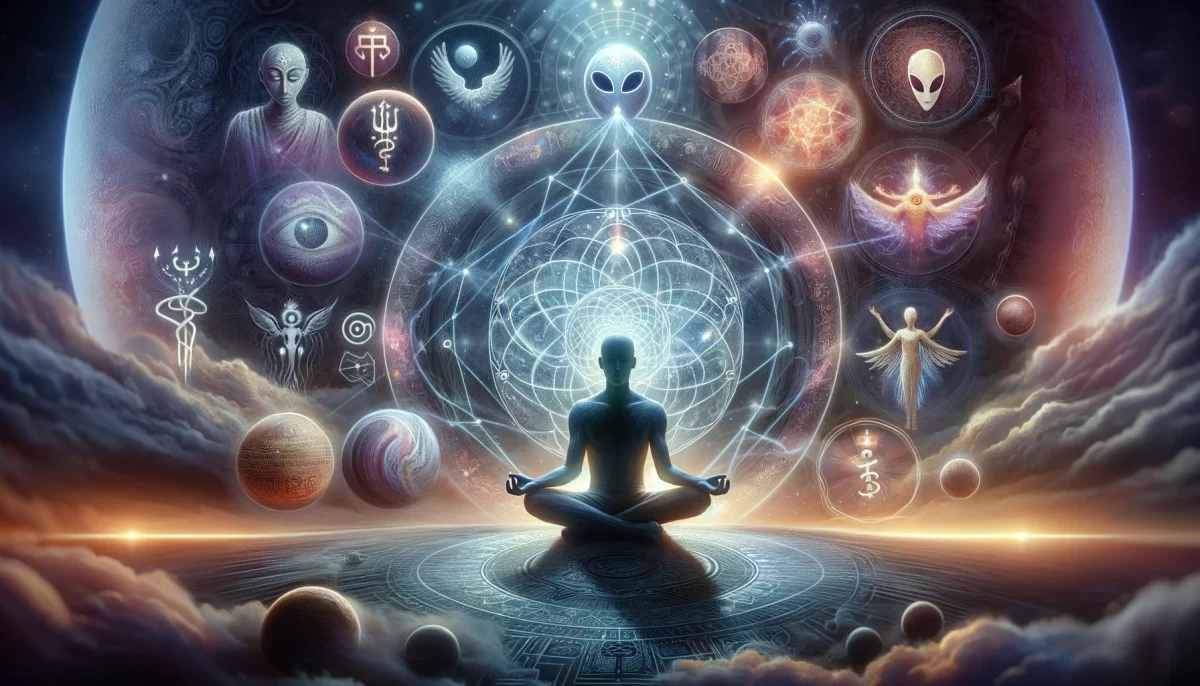
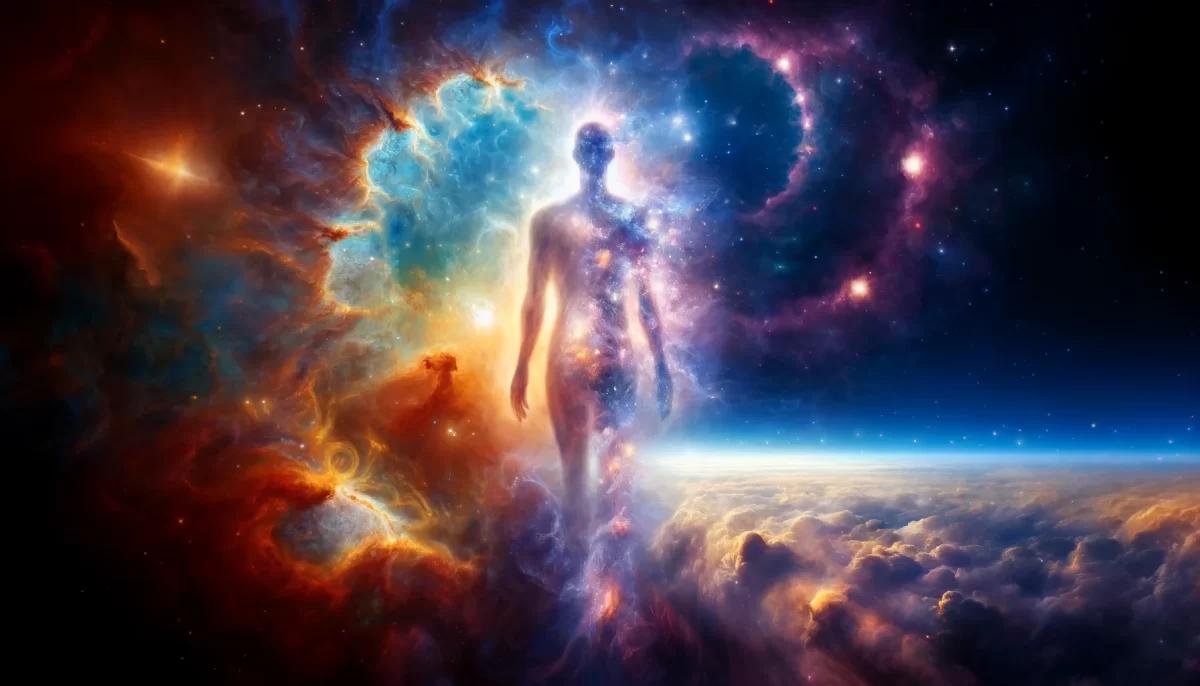

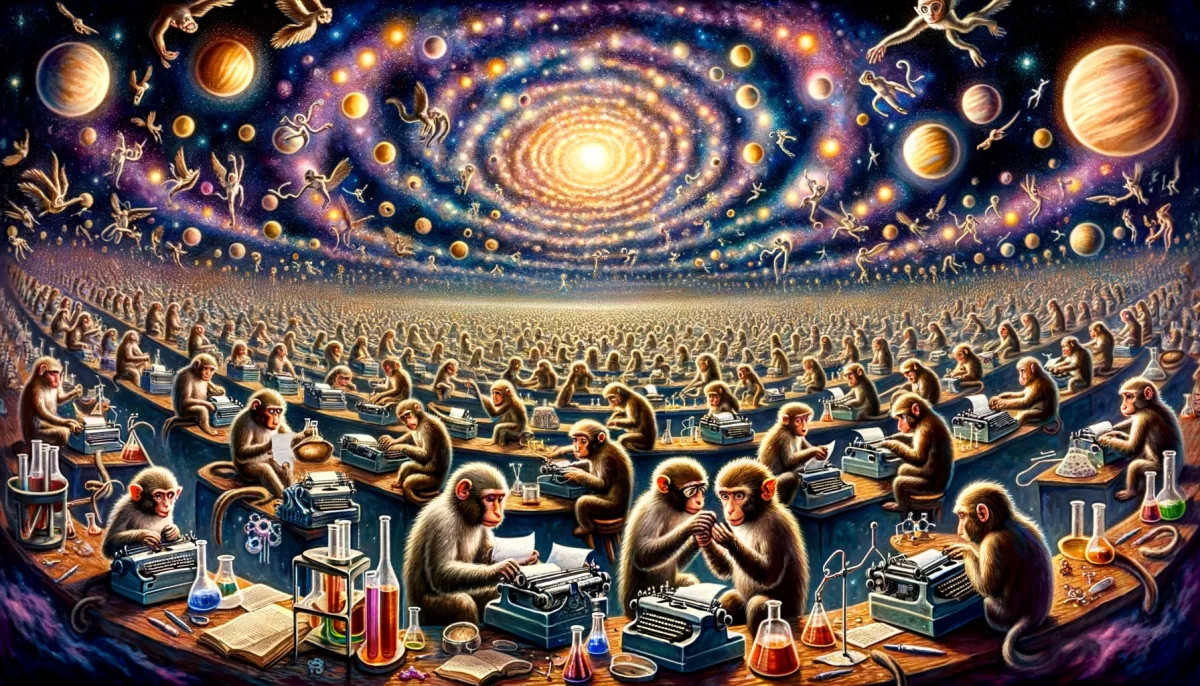
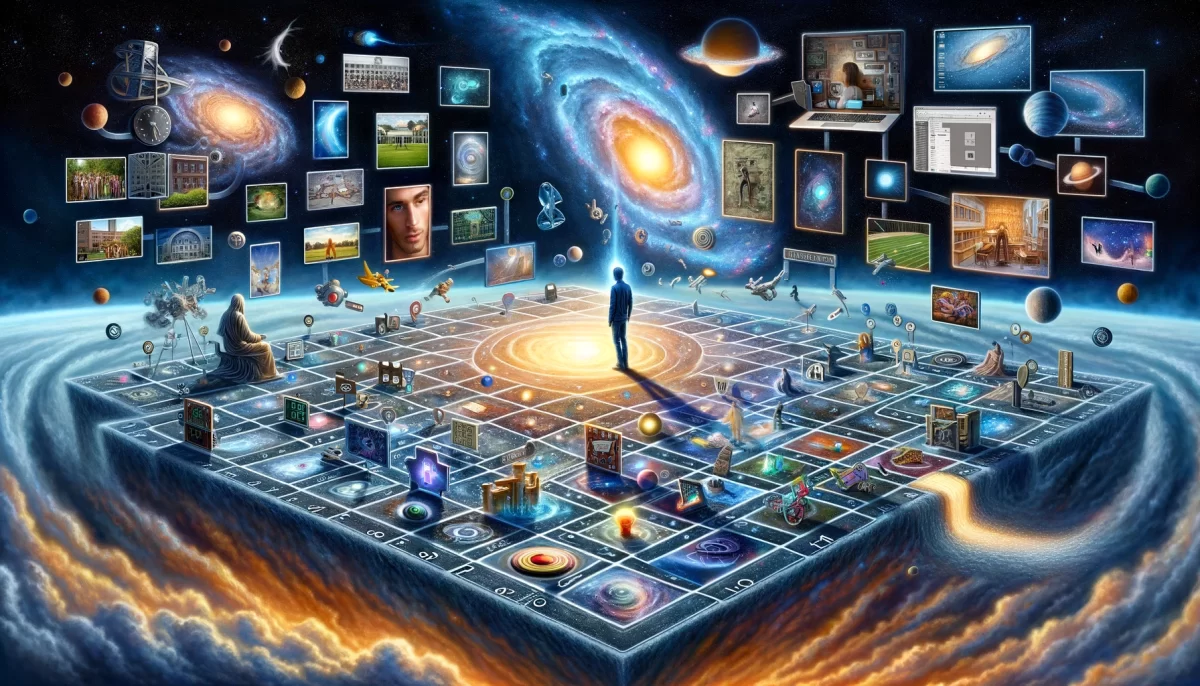
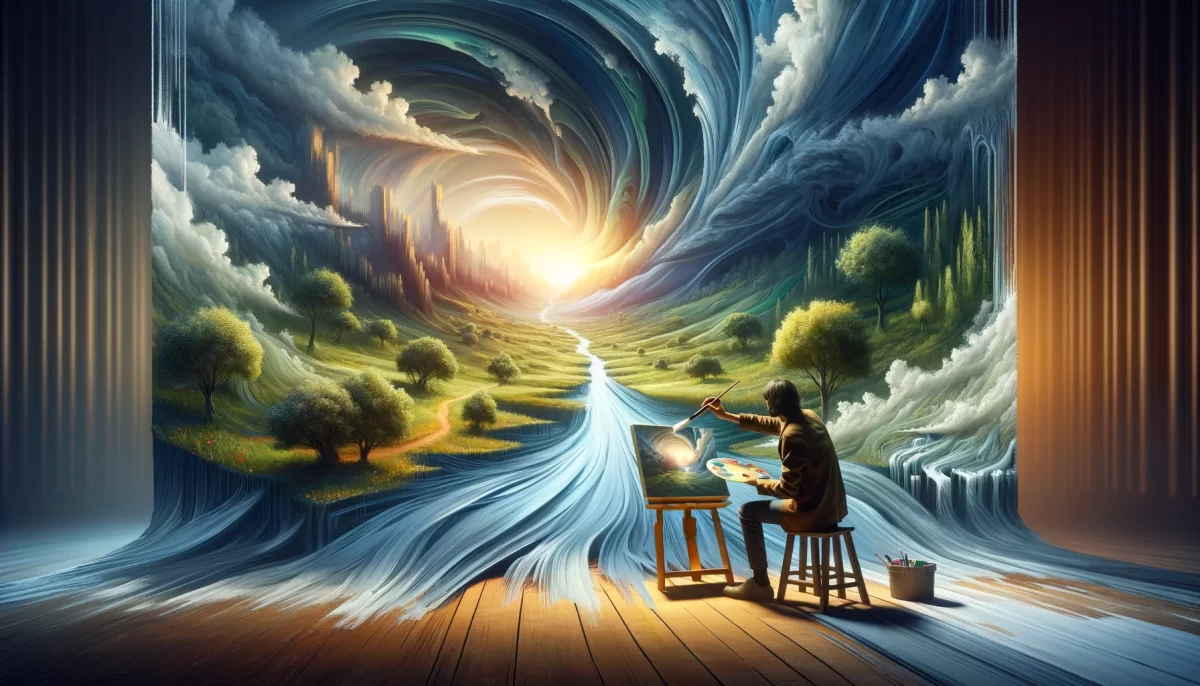
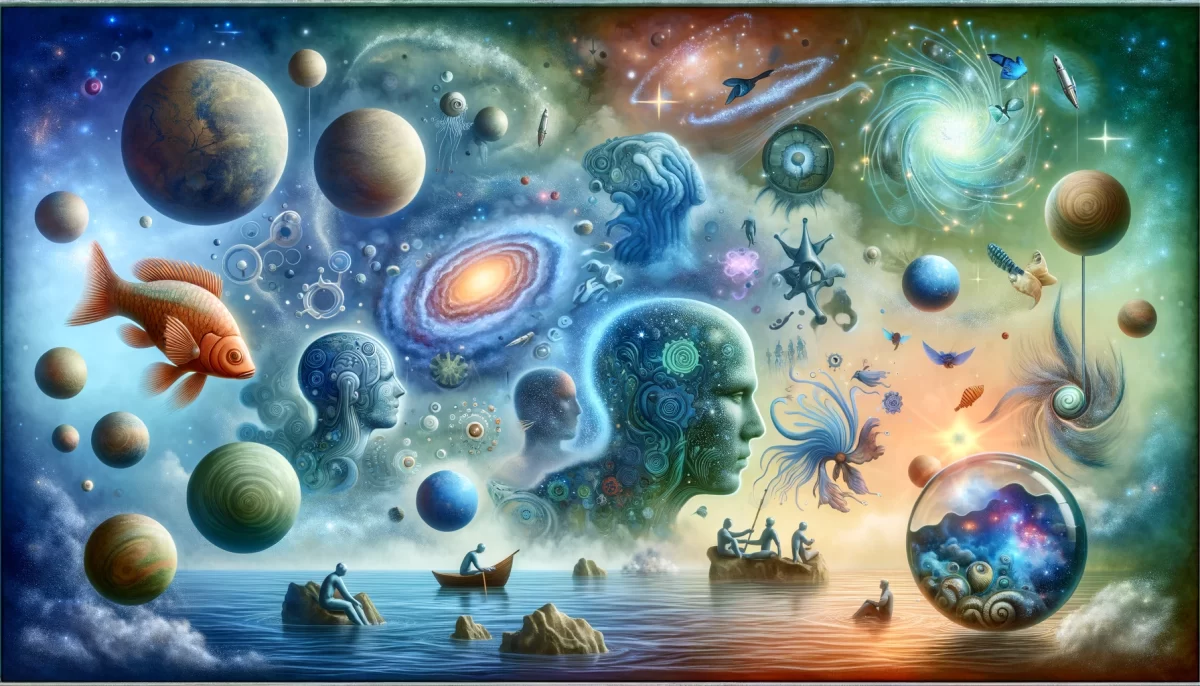
Leave a Reply